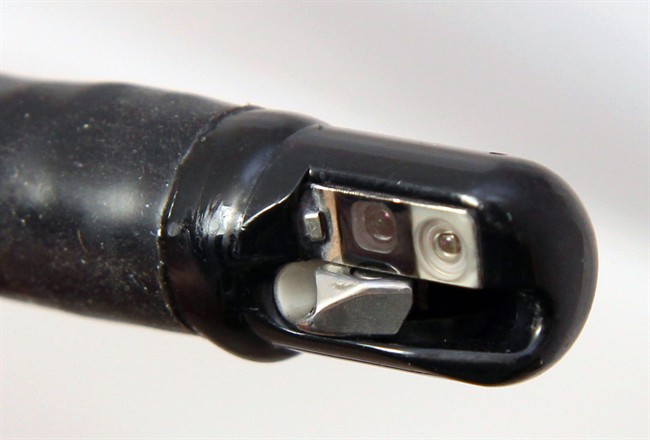LOS ANGELES – A second Los Angeles hospital is reporting that patients have been infected with an antibiotic-resistant “superbug” linked to a type of widely used medical scope.

The latest cases came at Cedars-Sinai Medical Center, where the four patients were infected with the superbug known as CRE, the hospital said Wednesday.
Two weeks ago a similar outbreak was reported at Ronald Regan UCLA Medical Center where seven patients, two of whom later died, were sickened with the superbug.
Cedars said in a statement that it halted such procedures after learning about the UCLA outbreak and launched its own investigation. The hospital said the germ may have been transmitted through a duodenoscope made by Olympus Corp. during procedures performed between last August and January.
READ MORE: 7 infected, 2 dead, after ‘superbug’ outbreak at L.A. hospital

Get weekly health news
One patient died, but Cedars said the cause was an underlying medical condition and not related to the superbug infection.
The hospital said there’s no evidence other patients are at risk. But as a precaution, it’s sending free home-test kits to 67 more patients who had procedures to diagnose pancreatic and bile-duct problems.
The latest infections were reported to state and local health departments and the U.S. Centers for Disease Control and Prevention. Cedars did not immediately respond to a message seeking further comment.
Hospitals across the country in recent years have grappled with cases of CRE, or carbapenem-resistant Enterobacteriaceae, with some linked to hard-to-clean medical scopes made by Olympus and other companies. The bacteria can cause infections of the bladder or lungs and can contribute to death in up to half of seriously infected patients.
Cedars and UCLA said infections occurred despite cleaning the devices to the manufacturer’s standards. The hospitals have since implemented more stringent disinfection procedures.
In the UCLA outbreak, the hospital offered free testing to about 170 patients who were potentially exposed. The hospital said Wednesday it doesn’t have an update on the results.
The U.S. Food and Drug Administration has said it received reports of 135 patients in the U.S. who may have been infected by contaminated scopes between January 2013 and December 2014. The agency has acknowledged that the design of the scopes can make them hard to clean, but it said pulling them off the market would deprive patients of “this beneficial and often life-saving procedure.”
Olympus Corp. of the Americas declined to comment on the Cedars infections. It previously said it’s working with the FDA on the infection problem and providing guidance to hospitals.
Cedars said it removed the contaminated scope from use and will resume endoscopic procedures after consulting with other hospitals and government agencies.







Comments